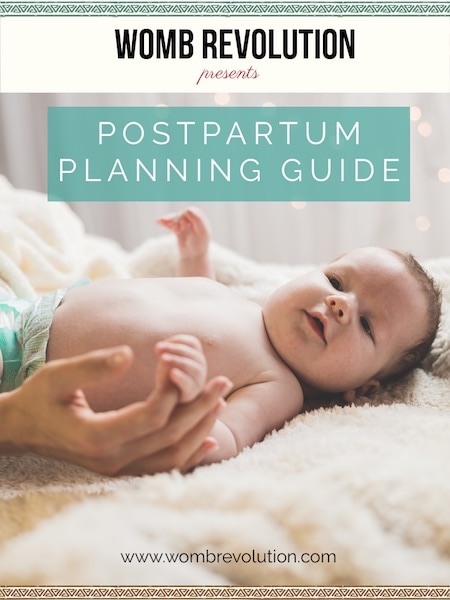I have spent the last few years passionately listening to women talk about their health, and a few trends have become apparent. One of the most startling, but also most common, stories I hear is about people being invalidated by their doctors or healthcare providers (see my blog post about informed consent). This is infuriating for many reasons, but mostly because no one knows your body better than you. You should be your #1 resource in your own healthcare. For me, this means being observant and curious about my own body.
| “You should be your #1 resource in your own healthcare. For me, this means being observant and curious about my own body.” |
Below are my top 4 reasons for charting menstrual cycles (and none of them are for conception or contraception).
I spent two years and saw three doctors trying to figure out what was going on with my body. I knew something wasn’t right. No matter what I ate or how much I exercised, I never lost a single pound. Most of these extra pounds were annoyingly settled right around my middle. Even worse, I had tiny cysts forming around my eyes and severe PMS symptoms. But no one could tell me exactly what was wrong. After charting my cycles for several months, I noticed my BBT was consistently a full degree lower than average (indicating hypothyroidism). I asked my naturopathic doctor for a hormone and blood panel. The results showed that I have hypothyroidism and a significant estrogen dominance- a condition which, untreated, is the leading cause of breast cancer in women. If I hadn’t been charting my cycles, I wouldn’t have been as in tune with my body and likely would not have noticed either of these issues!
2. Optimize Your Workflow and Facilitate Self-Care
I used to feel like my emotions controlled me. I was at the mercy of my menstrual cycle. I would cry for two days and not know why until I began to bleed. After charting my cycles for a few months, I began to notice trends in my energy level and emotion throughout the cycle. I now use this information to schedule extra shifts (during my follicular phase), or extra “me time” (during my luteal phase). I set aside creative projects and solo work for menstruation and make sure all my task oriented collaboration is scheduled as close to ovulation as possible. I know I’m more open minded during my follicular phase and more decisive during my luteal phase and this has helped me harness the power of my menstrual cycle.
3. Strengthen Your Bond with Your Partner
I’m not the only one who benefits from this knowledge. My partner has learned a lot about me, too.
On those days I have to send “I love you” texts from work, or can’t stop trying to hold his hand, my partner laughs and says “so follicular phase?” And during my most cynical days, he knows the best way to avoid conflict is to offer me a bath and a glass of wine.
Fertility Awareness makes me more comfortable with my body which helps give me confidence to discuss my body with my partner. Using Fertility Awareness for contraception forces couples to have constant communication about intentions for conception or contraception. It also gives both partners an equal amount of responsibility for their mutual fertility.
4. Appreciation for Your Own Body
Before I learned about the symptothermal method, I really thought I fully understood how my body (and menstrual cycle) worked. After all, I went to public school my whole life and have a college education. I was shocked to realize all the gaps in my knowledge and understanding. For instance, I had never heard of cervical fluid until I was 25 years old. I didn’t know that the cervix changed positions based on fertility and while I knew that estrogen and progesterone were hormones that made my menstrual cycle occur, I couldn’t explain where they came from or what their job was.
Learning how my body works has been empowering. I hadn’t realized how much culturally imposed shame was permeating my sense of self until I gained a better understanding of my body. I wasn’t sure what was “normal.” I used to think menstruation was gross. I thought “vaginal discharge” sounded disgusting and it was no wonder no one I knew talked about it. I didn’t even have a word to describe my cervical fluid. When I consider this now, it breaks my heart. Body literacy is a birthright and every human deserves an education of their reproductive selves.
The fact is, I’m no longer embarrassed of menstruation. I feel like a fertile goddess when I bleed. I’ll gladly discuss cervical fluid at dinner parties, and I’m never ashamed of my bodily functions. Strengthening my relationship with my body hasn’t just meant increased confidence, it has also instilled a new sense of honor and respect. Despite its flaws, my body is beautiful to me because it isn’t just a shell. It’s job is not just to look pretty or delicate or sexy, or whatever our culture tells us it must be.
When it comes to your health, you are your sole ally. You can only advocate for yourself if you are informed about how your body works and how it should work. Since becoming an expert on my body, I’ve been able to resolve the previously unidentified afflictions that were robbing my health and happiness. I’ve learned that my body tells me when I’m ready for a challenge, a change, or in need of rest. Being in tune with my body has allowed my partner and I to share an emotional frequency. Most importantly, it’s given me the opportunity to truly appreciate and love myself.
| “You can only advocate for yourself if you are informed about how your body works and how it should work.” |

Michele offers group classes in reproductive health, basic menstrual charting and achieving hormonal balance. She also offers individual coaching and support for contraception.


